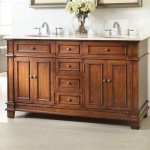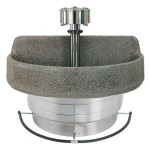Is Marble Or Quartz Better For Bathroom Countertops? A Comprehensive Comparison
Selecting the right countertop material for a bathroom renovation or new construction project involves careful consideration of several factors. Aesthetics, durability, maintenance, and cost all play vital roles in the decision-making process. Marble and quartz are two popular choices, each offering distinct advantages and disadvantages that make them suitable for different needs and preferences. This article provides a detailed exposition of the characteristics of marble and quartz as countertop materials, enabling a comparative analysis to determine which is better suited for bathroom applications.
Marble, a metamorphic rock formed from limestone or dolomite, is renowned for its timeless elegance and unique veining patterns. Its natural beauty has made it a favored material for architectural and decorative purposes for centuries. Quartz, on the other hand, is an engineered stone composed primarily of ground quartz crystals bound together with resins and pigments. This manufacturing process allows for a greater degree of control over color, pattern, and overall appearance, resulting in a highly consistent and durable product.
Aesthetic Appeal and Design Versatility
Marble's inherent beauty stems from its organic formation process, resulting in diverse and intricate veining patterns that are unique to each slab. The subtle variations in color and texture give marble countertops a luxurious and sophisticated look that is difficult to replicate with other materials. Marble is available in a range of colors, from classic white and gray to more vibrant hues like green, pink, and black. However, the availability of specific colors and patterns can be limited by geological factors.
Quartz countertops offer a broader range of design possibilities due to their engineered nature. Manufacturers can create quartz slabs in virtually any color, pattern, or texture, including those that mimic natural stone like marble and granite. This allows homeowners to achieve a specific aesthetic without the inherent limitations of natural stone. The consistency of quartz countertops is also a significant advantage for those seeking a uniform appearance across multiple surfaces or larger installations. Furthermore, quartz can be fabricated with various edge profiles, adding to its design versatility.
While marble offers a unique and natural aesthetic, quartz allows for greater customization and consistency. The better choice regarding aesthetic appeal ultimately depends on individual preferences and the overall design scheme of the bathroom.
Durability and Resistance to Damage
The durability of bathroom countertops is a crucial consideration, as these surfaces are exposed to moisture, chemicals, and everyday wear and tear. Marble, being a natural stone, is relatively porous and susceptible to staining from spills like wine, juice, and cosmetics. Acidic substances, such as vinegar and citrus juice, can also etch the surface of marble, leaving dull marks that are difficult to remove. Sealing marble countertops regularly can help to mitigate these risks, but it requires ongoing maintenance.
Quartz, due to its engineered composition, is significantly more resistant to staining, scratching, and etching than marble. The resins used in the manufacturing process create a non-porous surface that prevents liquids from penetrating the material. This makes quartz countertops easier to clean and maintain, reducing the risk of permanent damage from spills and everyday use. While quartz is highly durable, it is not entirely impervious to damage. Prolonged exposure to extreme heat can cause discoloration or cracking, so it is essential to use trivets or hot pads when placing hot items on quartz countertops.
In terms of durability and resistance to damage, quartz generally outperforms marble. Its non-porous surface and resistance to staining and etching make it a more practical choice for busy bathrooms or for individuals who prefer low-maintenance surfaces.
Maintenance and Cleaning Requirements
Maintaining the beauty and integrity of bathroom countertops requires regular cleaning and, in some cases, periodic sealing. Marble countertops require more diligent maintenance than quartz due to their porous nature. Regular sealing is essential to protect the surface from staining and etching. The frequency of sealing depends on the type of marble and the level of use, but it typically needs to be done every six months to a year. Daily cleaning of marble countertops should be done with a pH-neutral cleaner specifically designed for natural stone. Avoid using abrasive cleaners, scouring pads, or acidic substances, as these can damage the surface. Spills should be cleaned up immediately to prevent staining.
Quartz countertops are relatively easy to clean and maintain. A damp cloth and mild soap are typically sufficient for daily cleaning. The non-porous surface of quartz resists staining, so spills can generally be wiped up without leaving a trace. While quartz is resistant to most household chemicals, it is best to avoid using harsh abrasive cleaners, as these can dull the surface over time. Unlike marble, quartz countertops do not require sealing, further reducing the maintenance burden.
The maintenance requirements of quartz are significantly lower than those of marble. Quartz's ease of cleaning and lack of sealing requirements make it a more convenient option for homeowners seeking a low-maintenance bathroom countertop.
Cost Considerations
The cost of bathroom countertops can vary widely depending on factors such as the material, thickness, edge profile, and installation complexity. Marble is generally considered a premium material, and its cost can range from moderate to very high, depending on the type and rarity of the stone. The cost of marble also includes the cost of sealing and professional installation, which is recommended due to the material's fragility and susceptibility to damage during handling.
Quartz countertops also range in price, often depending on the color, pattern, and brand. While some high-end quartz options can be comparable in price to marble, many quartz countertops are more affordable. The cost of quartz installation is generally lower than that of marble, as quartz is easier to work with and less prone to breakage. The lack of sealing requirements for quartz also contributes to its lower overall cost of ownership.
While both marble and quartz countertops can represent a significant investment, quartz often presents a more budget-friendly option, particularly after considering long-term maintenance costs.
Impact of Light and Environment
The interaction of light with the countertop surface can significantly impact the overall aesthetic of a bathroom. Marble, with its natural variations and veining, can exhibit subtle changes in appearance depending on the lighting conditions. The light reflecting off the polished surface can create a sense of depth and dimension, enhancing the stone's natural beauty. However, in areas with direct sunlight, marble can be susceptible to fading or discoloration over time, particularly if it is not properly sealed and protected.
Quartz countertops, with their engineered composition, tend to maintain a more consistent appearance under different lighting conditions. The uniform color and pattern distribution ensure that the countertop looks the same regardless of the ambient light. Quartz is also less susceptible to fading or discoloration from sunlight, making it a suitable choice for bathrooms with large windows or skylights. The resin binders in quartz can sometimes yellow slightly over very long periods, particularly with exposure to UV light, but this is usually a very gradual process.
The impact of light on marble and quartz is very different. Marble's natural variations are enhanced by light, but it is also more susceptible to fading. Quartz maintains a consistent appearance and is less prone to sunlight-induced changes.
Resale Value and Long-Term Investment
When considering bathroom countertop materials, it's prudent to think about long-term investment and the potential impact on resale value. Marble, a classic symbol of luxury, can add significant value to a home. Its timeless appeal and association with high-end design can attract potential buyers and justify a higher asking price. However, prospective buyers must also be aware of the maintenance requirements associated with marble countertops.
Quartz countertops are also considered a desirable feature in modern homes. Their durability, ease of maintenance, and wide range of design options make them an attractive choice for many homeowners. While quartz may not carry the same prestige as marble, its practical benefits and contemporary aesthetic can appeal to a broader range of buyers. Furthermore, the relatively low-maintenance nature of quartz countertops can be a selling point for busy individuals or families. The longevity of the product is generally a plus when the house is up for resale.
Both marble and quartz can positively influence resale value, although marble is more associated with luxury, while quartz is more appreciated for its practicality.
Environmental Considerations and Sustainability
The environmental impact of countertop materials is an increasingly important consideration for environmentally conscious consumers. The extraction of marble can have environmental consequences, including habitat disruption, water pollution, and carbon emissions from transportation. However, some marble suppliers are adopting more sustainable practices, such as using recycled water, minimizing waste, and restoring quarries after extraction.
The production of quartz countertops also involves environmental considerations, including the extraction of quartz crystals and the use of resins and pigments. Some manufacturers are using recycled materials, such as recycled glass or porcelain, in their quartz countertops to reduce their environmental footprint. Additionally, the durability and longevity of quartz countertops can contribute to their sustainability, as they require less frequent replacement than other materials.
Both marble and quartz have implications for the environment. Responsible sourcing and manufacturing practices are crucial for minimizing the environmental impact of these countertop materials.

Choosing Bathroom Countertops Quartz Granite Or Marble

12 Best Quartz Bathroom Countertops In 2024 Marble Com

Bathroom Countertops Granite Quartz Marble Quartzite

Are Quartz Countertops Good For Bathrooms Livonia Mi Best Granite And Marble Installation Services In Michigan

Pros Cons Of Quartz Countertops For Bathrooms R D Marble

12 Best Quartz Bathroom Countertops In 2024 Marble Com

12 Best Quartz Bathroom Countertops In 2024 Marble Com

Quartz Granite Or Marble For Bathroom Vanity Which Is Best Bathtubber

What Material Should My Modern Bathroom Countertops Be Metropolitan Bath Tile

Granite Or Quartz Which Is Best For Your Bathroom Selection
Related Posts







